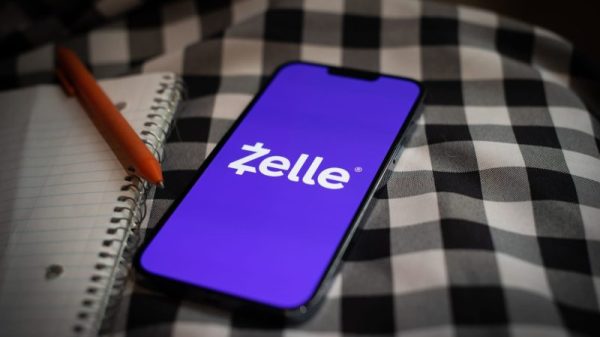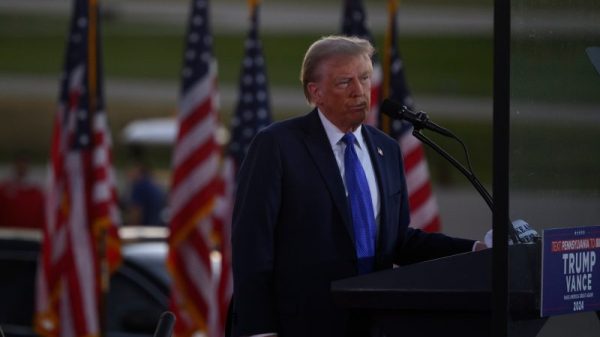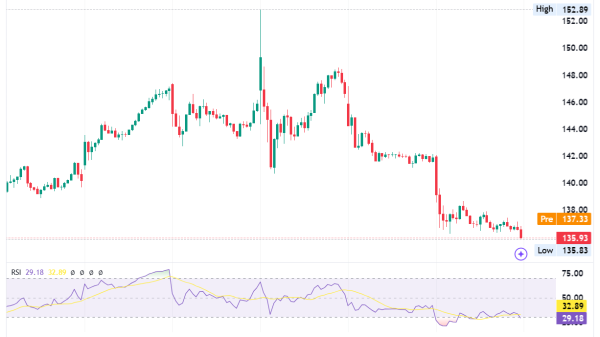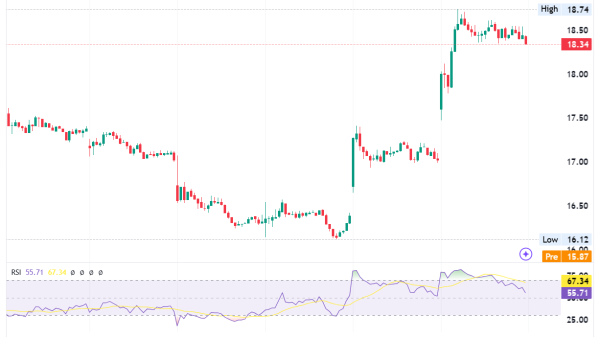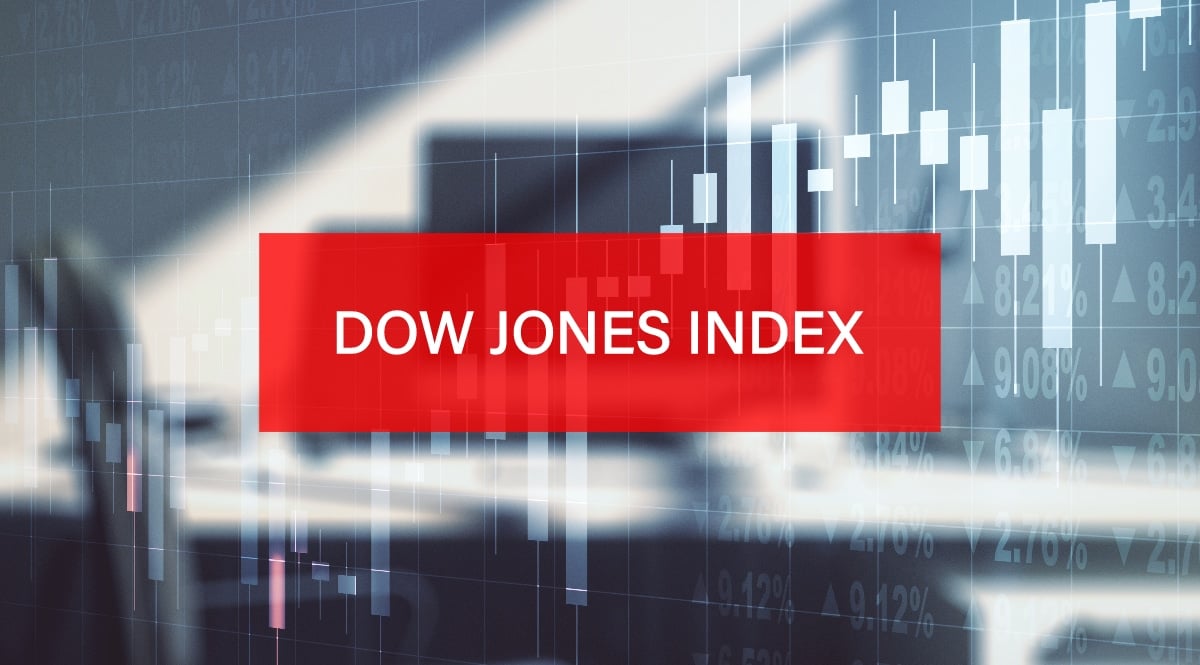What is and How to Invest in the Dow Jones Index?
What is and how to Invest in the Dow Jones Index? The Dow Jones Industrial Average Index or simply “Dow 30” is the main stock market index of the New York Stock Exchange. Is so far very popular among global stock market indices despite its appearance dating back more than a century. It’s a benchmark stock index representing a snapshot of the US stock market health. It consists of thirty blue chip companies or blue chip stocks coming from the health, energy and tech spectrum. So here are the main features of this stock index and the best ways to invest in it. But first let’s see what are the most prominent companies in the Dow Jones.
What companies are in the Dow Jones index?
Here are the 30 companies in the DJIA by price weight as of June 2023:
UnitedHealth Group Incorporated
Goldman Sachs Group Inc.
Microsoft Corporation
Home Depot Inc.
McDonald’s Corporation
Caterpillar Inc.
Visa Inc. Class A
Amgen Inc.
Boeing Company
Salesforce Inc.
Honeywell International Inc.
Apple Inc.
Travelers Companies Inc.
American Express Company
Johnson & Johnson
Chevron Corporation
Walmart Inc.
Procter & Gamble Company
JPMorgan Chase & Co.
International Business Machines Corporation
Merck & Co. Inc.
NIKE Inc. Class B
3M Company
Walt Disney Company
Coca-Cola Company
Dow Inc.
Cisco Systems Inc.
Verizon Communications Inc.
Intel Corporation
Walgreens Boots Alliance Inc.
Below you will be presented with information relating to the Dow Jones as a whole such as what it is, its current capitalization, the advantages that you can benefit from investing in the DJ30 as well as the procedure to follow. We have also added tips to help new traders.
How to invest in the Dow Jones index?
While you can’t invest directly into it, investing in the DJIA can be done through exchange-traded funds (ETFs) that track the index, mutual funds that invest in companies included in the index, or by purchasing shares in the individual companies that make up the index.
How to invest in the Dow Jones: index ETFs vs mutual funds
The best way to indirectly invest in the Dow Jones index is with mutual funds and ETFs. Let s see what these types of investments involve and how to proceed.
Investing in the Dow with a mutual fund
Investing in the Dow Jones Industrial Average (DJIA) through a mutual fund can provide diversified exposure to the 30 large-cap U.S. companies that make up this popular index. Here’s a step-by-step guide on how to do this, followed by some key factors to consider:
How to Invest in the DJIA with a Mutual Fund:
Research Mutual Funds
There are several mutual funds and ETFs (exchange-traded funds) that track the DJIA. One of the most widely recognized is the SPDR Dow Jones Industrial Average ETF (ticker: DIA). It’s important to compare different funds to ensure you select the one that aligns with your investment goals.
Open an Account
If you don’t already have a brokerage account, you’ll need to open one. Most online brokerage platforms allow you to invest in mutual funds and ETFs.
Purchase Shares
Once your account is open and funded, you can purchase shares of the DJIA-tracking mutual fund or ETF of your choice.
Monitor & Rebalance
Even though index funds are designed to be passive investments, it’s still a good practice to monitor your holdings and rebalance as needed based on your broader financial goals and strategies.
Key Factors to Pay Attention To when investing with a mutual funds are:
Expense Ratio
This is the annual fee, expressed as a percentage, that all funds or ETFs charge their shareholders. It represents the percentage of assets deducted each fiscal year for fund expenses. A lower expense ratio can save you money in the long run.
Tracking Error
This measures how closely a fund’s performance matches the index it’s designed to track. A lower tracking error indicates that the fund closely follows the DJIA’s performance.
Dividend Yield & Distribution
If you’re interested in income from your investments, consider the fund’s dividend yield and distribution policy.
Liquidity
Ensure that the mutual fund or ETF has sufficient daily volume and liquidity, which can influence your ability to buy or sell shares without affecting the price too much.
Fund Management
While index funds are typically passively managed, there are nuances in how indexes are replicated. It might be worth understanding the methodology employed by the fund’s managers.
Tax Efficiency
Some funds are more tax-efficient than others due to their structure and management strategies. If you’re investing in a taxable account, consider tax implications.
Other Fees
Be aware of any additional fees or charges, such as transaction fees, associated with buying or selling shares of the fund.
Historical Performance
While past performance is not indicative of future results, it can give you a sense of how well the fund has done in tracking the DJIA in various market conditions.
Investing in the Dow Jones with an ETF
Index exchange-traded funds (ETFs) function in a similar way to index mutual funds, allowing investors to pool their money in a fund that holds a diverse range of assets such as stocks, bonds, and other investments. However, there is a key distinction between the two: index mutual funds can only be traded once per day at the end of the trading day, whereas ETFs can be traded like individual stocks, meaning their share prices can change throughout the trading day.
ETFs come in various forms, not all of which are tied to a specific index. Some ETFs are linked to specific sectors, industries, or markets. If you want to invest in the Dow Jones Industrial Average using an ETF, you would need to choose an ETF that is based on that index. The important factors to consider when investing in an ETF are not significantly different from those of an index mutual fund.
Follow these steps to buy a Dow Jones Index ETF
Open an account
You have the option to register with a conventional brokerage or a robo-advisor, which offers a wide selection of ETFs.
Deposit funds
Determine the amount of money you can invest and transfer it to your account.
Select and purchase an ETF
After deciding on an ETF, buy it using your brokerage account. Make sure to use the previously mentioned important factors to compare expense ratios and dividend yields.
The Dow Jones index, what is it?
It is certainly the oldest among the indices in the world, the American stock market index Dow Jones Industrial Average was created in 1896 by journalists Charles Henry Dow and Edward Jones. It is owned by the Dow Jones Indexes, a joint venture owned 90% by CME Group and 10% by Dow Jones and Company.
The DJ30 is one of the 3 most important stock market indices in the United States alongside the Nasdaq composite (National Association of Securities Dealers Automated Quotations) and the Standard & Poor’s 500 (S&P 500).As of September 2023 Dow has a market cap of $37.99 Billion.
The Dow Jones Industrial Average the performance of the 30 largest American companies which are mainly listed on the New York Stock Exchange (NYSE). It is considered an indicator of the performance of the American economy in the sense that if the economy is growing it goes up and in periods marked by crises it is downtrend.
Dow Jones, how does it work?
Like the Nikkei 225, the DowJones has the particularity of not taking into account the market capitalization of listed companies.
Unlike most indices which are calculated on the basis of capitalization, the calculation of the Dow Jones Industrial Average index is based on the average of the price of the shares. The higher the latter is for one, the more this company will have a greater weight in the index.
In the early years, the calculation was only the sum of shares divided by the number of companies but it was quickly revised to accommodate the various changes that sometimes occur such as special dividends, mergers and stock splits. of shares. The divisor is no longer the set of companies but the Dow divisor which is constantly adjusted and can be found in the Wall Street Journal.
Since it has 30 companies, its composition has changed nearly 60 times. The first came just 3 months after the index was launched. Representatives from the S&P Dow Jones Indices and Wall Street Journal editors form a committee to decide which industrial companies to include in the Dow Jones Industrial Average.
What factors influence the Dow Jones price?
The Dow Jones index takes a similar stance to the US economy. Here are the main factors that can influence the Dow Jones price.
The Dow Jones may vary following major events: political unrest, economic news, wars and natural disasters.
The index also varies according to economic reports such as unemployment or job creation, inflation rate, GDP growth rate, press conferences and US Federal Reserve interest rates.
Any large changes in the share prices that have very large values in the index are likely to change the price of the Dow Jones since it is a price weighted average which does not imply that this is necessarily the case on the market as a whole.
How to follow the price of the Dow Jones live?
To follow the price of the Dow Jones index, simply go to the brokers offering the index or other financial news sites. These include: eToro, Boursorama, Bourse Direct, TradingView and Libertex. For brokerage sites, you will have the price of the index in real time without any lag with graphical analysis information.
You can follow stock index prices on Google. All you have to do is search for “Dow Jones price” and Google will give you all the information about the price of the Dow Jones index. It should be noted that the course provided by Google may have delays of a few minutes.
Why trade the Dow Jones index?
Dow Jones is the oldest index in the world. It enjoys a very good reputation internationally. It is not only for its seniority and its history that the index should be traded. The index contains very large intrinsic values which should be of interest to any stock market trader.
Dow Jones and liquidity
Stock market liquidity is when a market offers stocks with significantly high volume to allow the trader to easily enter and exit positions. The Dow Jones index is well known for its liquidity. The trading volume of the index is sufficiently high; which will allow the trader to change position easily.
The volatility of the Dow Jones index
Volatility is the ability of an asset to change quickly depending on events. The Dow Jones index is closely linked to US macroeconomic fluctuations. These fluctuations can allow traders to make huge gains when they are good. If they are bad, the trader could realize huge losses.
Dow Jones and transparency
The general public has access to all the information available on this index. Its course, fluctuations and price are scrutinized in real time by brokers and provided to traders without any distortion.
Investing in Dow Jones FAQ
What is the Dow Jones index?
The Dow Jones or Dow is an American stock market index published for the first time on May 26, 1996. The founders are none other than Edward Jones and Charles Dow, editor and founder of the Wall Street Journal.
Should I invest in the Dow Jones index or S&P 500?
Typically, at the start of bull markets, the S&P500, which is more exposed to technology stocks, outperforms the Dow Jones. However, because of its value and defensive nature, the Dow seems to weather storms much better when they occur.
How is the Dow Jones index calculated?
The calculation of the Dow Jones index used to be done by the sum of the share price divided by the number of companies (12) but this method has evolved a long time ago. The sum of companies is replaced by the Dow divisor.
How many companies are included in the DJ30 index?
The index is currently made up of 30 companies but this has not always been the case. In its beginnings, it initially included 12 companies and then it had 20 companies. Companies move in and out of the ranking but the number does not change.
Which company has spent the longest time in the Dow Jones Index?
The General Electric Company has spent the longest time in the DJ30 index. It was one of the first twelve companies to appear there and it left the ranking on June 19, 2018.
How to invest in Dow Jones?
The first thing to do to invest on DJ30 is to choose a reliable broker. After choosing the broker you must create an account, make a deposit of funds and finally bet a quantity of money on the index.
The post What is and How to Invest in the Dow Jones Index? appeared first on FinanceBrokerage.







